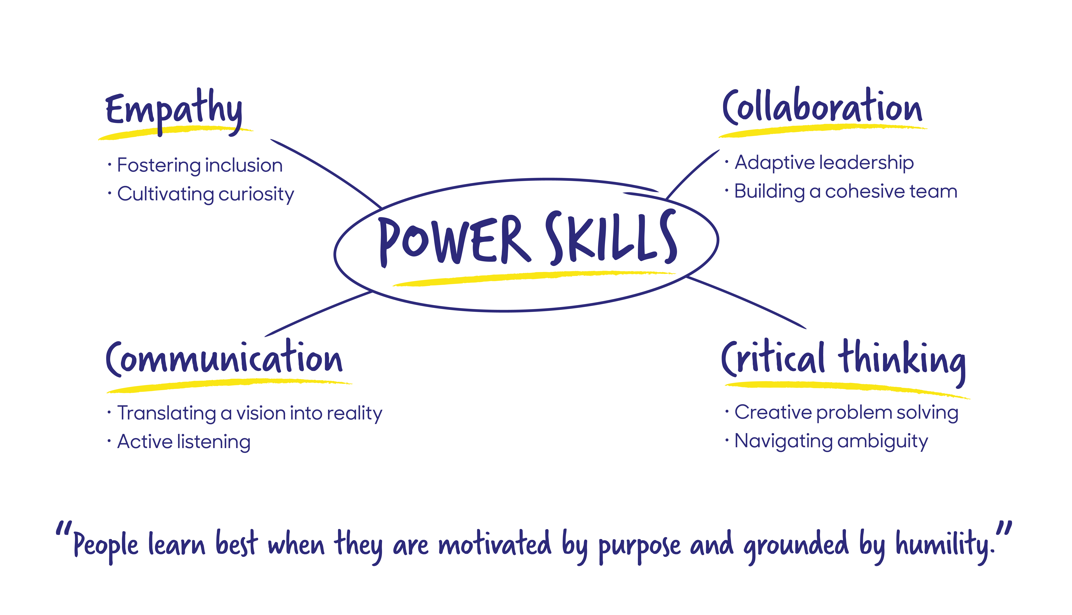News
The power of a good question
How can someone’s business skills make a difference for a charity – if the business volunteer has very little knowledge about how the third s
There can be no green transition without green skills
One of the best definitions of sustainability I have come across (and by some counts, there are over 200 definitions) is that it is about humanity learning fast enough for us to survive.
How can we develop emotionally intelligent leaders in an AI-driven world?
Artificial Intelligence (AI) evangelists claim we are in the next Industrial Revolution. But isn’t it our human capacity for empathy and self-awareness that truly drives meaningful change?
How to innovate leadership development
“Leaders today crave immersive experiences that equip them with the practical skills to navigate the complexities of their role,” is something I often hear from Learning and Development leaders.
The purpose paradox: How volunteering boosts productivity
Improving productivity growth is the decades old dilemma for UK business. Throughout my whole career, which I’ll be honest dates back to typewriters on desks, it seems that we’ve been trying to crack the code on how to increase work outputs.
The unexpected solution to workplace absenteeism
Reasons for absenteeism can range from mental health concerns to workplace stress and dissatisfaction. When Illness forces employees to take time off, disrupting workflows, and impacting productivity, these can be costly problems for businesses.
A win-win for wellbeing
After a period of testing and development, Pilotlight Impact Day was born. Rather than focus on open questions of strategy, funding and governance for charities, the time was structured into small teams focusing on precise challenges, carefully prepared in advance, that were critical to the life of the charity.
Workplace volunteering could unlock billions in the UK economy
Workplace volunteering has the potential to boost productivity, improve employees’ wellbeing, and generate billions for the UK economy, according to a new report by Pro Bono Economics (PBE).
Why volunteering is the key to boost employee wellbeing
With World Happiness Day, it's a good time to look at what businesses are doing to pick up the cause of employee wellbeing and there are some surprising results.
Giving back: Making the most of your skills
Over my year at Pilotlight, there is perhaps one phrase I’ve heard more than any other from our volunteers: “I’m not sure there is anything I can bring to this charity.”










